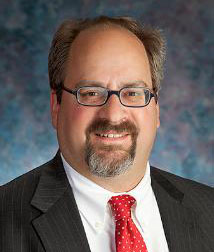One of my very favorite things about bankruptcy practice is that it seems that for every decision from any particular court, you can usually find another decision from another court holding to the contrary. Divergent bankruptcy decisions often result from nuanced facts particular to the specific case.
Unsecured Trade Creditors Committee
Committees
One of a plan proponent’s primary tasks in the confirmation process is seeking the acceptance of creditors whose claims would be impaired under the proposed plan.
Bankruptcy trustees often find that by the time a case has commenced, potential fraudulent transfers are already so far in the past that they are beyond the reach of the two-year look-back period under § 548 of the Bankruptcy Code.
In In re Clark,[1] the Bankruptcy Appellate Panel for the Ninth Circuit affirmed a bankruptcy court’s determination to substantively consolidate an individual’s chapter 7 bankruptcy estate with the assets of a non-debtor limited liability company ranch and a trust that the debtor controlled.
The Unsecured Trade Creditors Committee (UTC) was hard at work once again in 2016.
Competition among law firms to be selected as counsel to an Official Committee of Unsecured Creditor is notoriously stiff. The financial rewards are substantial and work begets more work. Every new engagement is another line in the pitch book, and one less for the competition.
By making official committees of creditors mandatory, Congress recognized that committees can be vital to the success of a chapter 11 case. That is why the United States Trustee Program (“USTP”) expends great effort to solicit and to appoint a “representative” group and to provide its members with a charge that explains their important fiduciary duties to act on behalf of their constituency.
In chapter 11 cases, the U.S. Trustee’s power is prominently showcased throughout the process of appointing official creditors (and equity) committees. The Code instructs that the U.S. Trustee “shall appoint a committee of creditors holding unsecured claims and may appoint additional committees ...
[1]Picture the scene: A vendor has just received word that its customer has filed chapter 11. The vendor put the customer on a cash-before-delivery basis and demanded assurances of performance. The vendor was successful in reducing the accounts receivable owed and avoiding preference liability in doing so.
Gas prices have plummeted more than 70 percent in the last two years.[1] This is financially devastating for the oil and gas industry. To cover the “souring energy loans” secured by oil and gas properties and proceeds, U.S. banks have set aside $2.5 billion.
Co-Chair
Lowenstein Sandler LLP
New York, NY
(646) 414-6886
Co-Chair
Cleary Gottlieb Steen & Hamilton LLP
New York, NY
(212) 225-3341
Communications Manager
Potter Anderson & Corroon LLP
Wilmington, DE
(302) 984-6058
Education Director
Akin Gump Strauss Hauer & Feld LLP
New York, NY
(212) 872-7453
Membership Relations Director
Frost Brown Todd LLC
Cincinnati, OH
(513) 651-6842
Newsletter Editor
Jackson Kelly PLLC
Lexington, KY
(859) 806-6756
Special Projects Leader
Lowenstein Sandler LLP
Roseland, NJ
(973) 597-2500













